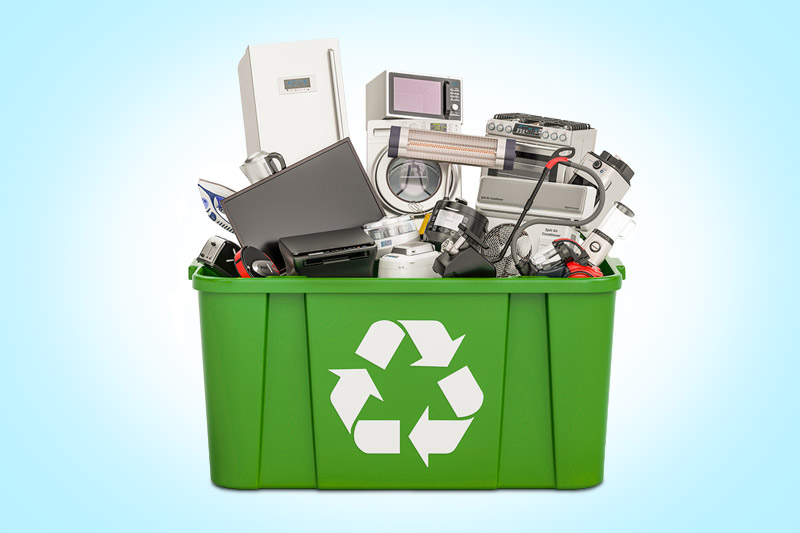Master the Needs of R2 Certification to Ensure Sustainable Business Practices
At the center of this activity is the R2 accreditation, an extensive requirement that establishes the bar high for electronic devices recyclers and refurbishers. As organizations strive to straighten with ecologically mindful practices, grasping the requirements of R2 accreditation is critical. In a world where sustainability is no much longer a simple buzzword however an organization crucial, diving into the complexities of R2 certification is a calculated step that can lead the way for lasting success and favorable ecological influence.
Importance of R2 Qualification
Attaining R2 Accreditation is important for businesses aiming to demonstrate their commitment to liable and sustainable electronic waste monitoring methods. This accreditation, established by SERI (Sustainable Electronics Recycling International), sets the criterion for responsible reusing practices in the electronic devices sector. By getting R2 Certification, organizations signal to their stakeholders that they stick to rigorous environmental, health and wellness, and security policies while taking care of electronic waste.
Among the vital reasons R2 Certification is essential is its emphasis on sustainability. With electronic waste being a considerable global concern, organizations need to showcase their devotion to lessening the environmental influence of their procedures. R2 Qualification calls for companies to apply processes that make certain the appropriate handling, repair, and recycling of electronic waste, thereby adding to the round economic climate and minimizing the buildup of e-waste in garbage dumps.
Moreover, R2 Accreditation improves a business's track record and reliability. In today's eco aware market, partners and customers are increasingly looking to work together with services that prioritize sustainability. By achieving R2 Qualification, business can differentiate themselves as leaders in liable e-waste monitoring, getting an affordable side and attracting like-minded stakeholders.
Secret Elements of R2 Criteria

Steps to Obtain R2 Qualification
To certify for R2 Qualification, companies should thoroughly demonstrate compliance with a set of strict criteria and standards. The process of acquiring R2 Accreditation entails numerous key actions.
Following, services need to analyze their current methods and processes to recognize any type of voids that require to be addressed to satisfy the R2 Criterion. This may entail carrying out brand-new treatments, buying training programs, or making changes to existing procedures. When any shortages are treated, companies can continue to develop a detailed administration system that aligns with the R2 demands.
Following the execution of the necessary adjustments, organizations need to undertake a third-party audit to confirm their compliance with the R2 Requirement (r2 certification). This audit is carried out by an accredited qualification body and consists of a comprehensive testimonial of the organization's facilities, treatments, and documentation. Upon successful conclusion of the audit, organizations can get their R2 Qualification, showing their dedication to lasting and responsible service techniques
Advantages of R2 Compliance
Organizations that stick to R2 conformity requirements can unlock a myriad of advantages in today's sustainable business landscape. Among the main advantages go of R2 conformity is boosted reliability and track record. By meeting the strenuous demands of the certification, business can demonstrate their dedication to responsible electronic waste monitoring, which can infuse depend on among stakeholders, clients, and companions. view it R2 compliance can lead to set you back savings via boosted performance in handling electronic waste. By implementing appropriate recycling and refurbishment techniques, organizations can decrease waste disposal expenditures and potentially create profits from recouped materials. Furthermore, R2 conformity promotes environmental sustainability by guaranteeing that electronic waste is managed in an eco-friendly fashion, minimizing the effect on land fills and natural deposits. This dedication to sustainability can additionally attract eco mindful customers and partners, supplying a competitive edge out there. In general, attaining R2 conformity not just assists businesses meet governing requirements yet additionally fosters a society of ecological duty and functional excellence.
Keeping R2 Certification
Demonstrating an ongoing commitment to responsible digital waste management techniques, companies must concentrate on the thorough process of keeping R2 certification. Preserving R2 accreditation involves routine audits, internal evaluations, and constant improvement initiatives to make sure compliance with the rigid requirements established forth by the Liable Recycling Practices (R2) criterion. Organizations must remain attentive in monitoring their digital waste management processes, information safety and security measures, and overall ecological efficiency to support their R2 qualification condition.
Routine training and education and learning for staff members are important to keep R2 accreditation, as personnel require to be educated concerning the most recent finest techniques and industry requirements. Maintaining in-depth records and documentation of digital waste recycling tasks, downstream suppliers, and internal processes is critical for showing compliance throughout audits.
In addition, organizations need to actively involve with their supply chain companions and vendors to make certain that all entities entailed in the electronic waste management process adhere to R2 requirements. read what he said By cultivating a society of transparency, accountability, and constant renovation, businesses can efficiently preserve their R2 certification and support their dedication to sustainable service practices.
Conclusion

Accomplishing R2 Qualification is vital for companies intending to show their dedication to sustainable and accountable electronic waste monitoring methods. By obtaining R2 Accreditation, organizations signal to their stakeholders that they adhere to stringent ecological, health, and safety and security policies while handling digital waste.
Upon effective completion of the audit, businesses can receive their R2 Qualification, showing their dedication to responsible and lasting service practices.
Keeping R2 certification includes routine audits, internal reviews, and continual renovation efforts to make certain conformity with the rigid needs set forth by the Responsible Recycling Practices (R2) criterion. By comprehending the essential parts of R2 requirements, taking the needed actions to acquire accreditation, and gaining the benefits of R2 compliance, companies can show their commitment to responsible digital waste management.